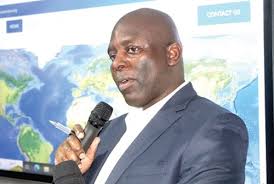Despite years of laws, reforms, and public campaigns, Ghana is still losing the fight against corruption. This warning was made by Dr. John Osae-Kwapong, a respected governance expert and Project Director at the Democracy Project. Speaking at the launch of the 2024 State of Corruption, he said that the country’s efforts have shown “effort without impact”, as corruption remains deeply rooted in public institutions.
Dr Osae-Kwapong noted that while Ghana has created laws, built institutions, and benefited from active civil society groups, the actual results are disappointing. “The needle is not moving. We are not winning the war,” he said bluntly at the event organised by the Ghana Anti-Corruption Coalition (GACC).
According to the GACC’s 2024 report, based on surveys and expert analysis, Ghanaians are increasingly afraid to report corruption. The number of people who believe it is dangerous to expose wrongdoing has doubled since 2017. In fact, 68% of citizens said they are unlikely to report corruption, mainly because of fear of victimisation or lack of trust in the system.
Dr Osae-Kwapong explained that such findings reveal a growing sense of helplessness among ordinary citizens, with many believing that the state will not protect them if they blow the whistle. “If people believe the state cannot or will not protect them, they will stay silent — and corruption thrives in silence,” he warned.
He criticised public institutions for poor internal controls and ineffective anti-corruption systems. Instead of preventing theft before it happens, most institutions rely on reports from the Auditor-General long after the damage has been done. “Internal auditors, procurement officers, and finance controllers must be the first line of defence. But many of these systems are either weak, compromised, or underfunded,” he stated.
The report also revealed that anti-corruption institutions in Ghana are poorly coordinated. There are overlapping responsibilities between bodies like the Office of the Special Prosecutor (OSP), Economic and Organised Crime Office (EOCO), Commission on Human Rights and Administrative Justice (CHRAJ), and the Auditor-General’s Department. This often leads to delays, confusion, and weak enforcement.
“We have too many cooks in the kitchen,” Dr Osae-Kwapong said. “We need a system that builds synergy, not confusion.” He called for legal harmonisation of mandates among anti-corruption agencies to allow better collaboration and faster results.
The expert further called on political leaders to show real commitment by taking swift action against public officials involved in wrongdoing. According to him, accountability should not wait until a new government takes over. “When wrongdoing is identified, action must follow — suspensions, investigations, and prosecutions — all in real time,” he said.
To measure real progress, Dr Osae-Kwapong said efforts should be tracked through tangible results such as money recovered, sanctions imposed, whistleblowers protected, and cases resolved using the Auditor-General’s disallowance and surcharge powers.
The GACC report made several key recommendations to improve the fight against corruption in Ghana:
Pass the Conduct of Public Officers Bill urgently.
Activate key clauses in the Whistleblower Protection Act, especially those that shield citizens from victimisation.
Establish an independent anti-corruption tribunal to fast-track court cases involving corruption.
The State of Corruption in Ghana report is published annually and is designed to track trends, evaluate government performance, and guide reforms. It also serves as a critical tool for civil society organisations and policymakers who want to strengthen Ghana’s fight against corruption and promote good governance.
